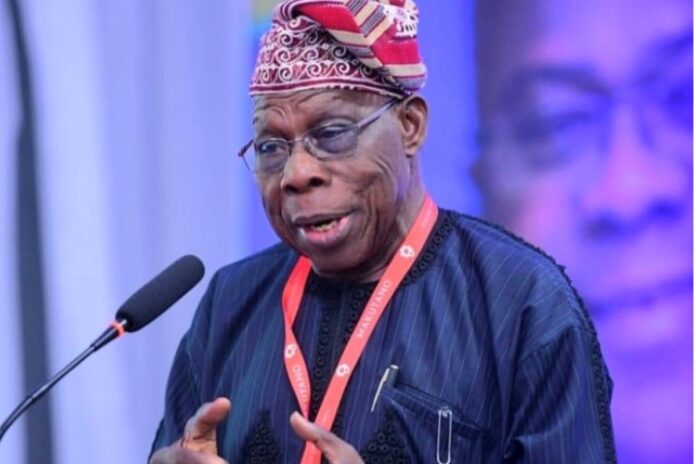Former President Olusegun Obasanjo has revealed that he once rejected a proposal to make former Kaduna State Governor, Malam Nasir El-Rufai, his successor at the end of his tenure in 2007.
Obasanjo disclosed this on Friday in Abeokuta, Ogun State, during the second edition of the annual Ajibosin Platform symposium with the theme, “Importance of Leadership in Governance.”
Under Obasanjo’s administration, El-Rufai served first as the Director-General of the Bureau of Public Enterprises (BPE) before becoming the Minister of the Federal Capital Territory (FCT) between 2003 and 2007.
While recalling events leading up to the end of his presidency, Obasanjo said one of his ministers at the time, Osita Chidoka, had recommended El-Rufai as a suitable successor, but he declined, insisting that the then-FCT Minister needed more time to grow politically and in maturity.
Speaking at the event, the former President said, “Let him tell you. He didn’t mention that. He was pushing, when I was leaving government, that his friend, El-Rufai, should be brought in as my successor.”
Turning to Chidoka, who sat among the panelists, Obasanjo asked in Pidgin, “No be so?” to which the former Aviation Minister nodded in agreement.
Obasanjo explained that he ignored the pressure because he believed El-Rufai needed to mature before taking up such a high office.
“I did not yield to the pressure. Later, he said, ‘I suggested this person, why didn’t you agree?’ I said El-Rufai needs to mature. You remember?” Obasanjo said. “When I left government, many years later, he came back to me and said, ‘You were absolutely correct. El-Rufai needed to mature.’”
Despite this, the former President commended both El-Rufai and Chidoka for their intelligence, energy, and commitment, describing them as among the bright minds who helped his administration achieve results.
He also used the opportunity to emphasize the importance of leadership training and character development in governance, saying that politics in Nigeria lacks the kind of mentorship and structure found in other professions.
“It’s only in politics that I found out there is no training for leadership,” he said. “Even among armed robbers, I was told there is apprenticeship. But it’s only in politics that there is no training in leadership. That’s not good enough.”
Delivering the keynote address earlier, Chidoka shared his own recollections of working under Obasanjo, noting that his appointment as Corps Marshal of the Federal Road Safety Corps (FRSC) came after El-Rufai recommended him to the President at the age of 34.
Chidoka, who served as Minister of Aviation under former President Goodluck Jonathan, used his lecture to highlight the link between strong leadership and effective governance. He argued that Nigeria’s persistent problems are rooted not in a lack of ideas but in weak institutions and poor accountability systems.
“Leadership finds its true measure not in speeches or charisma but in the systems it leaves behind,” he said. “Moral conviction must translate into everyday machinery of governance—rules, routines, and institutions that make competence predictable and corruption difficult.”
According to Chidoka, Nigeria’s biggest challenge is the “politics of alibi,” where leaders find excuses instead of taking responsibility.
“We must therefore make leadership accountable not to rhetoric but to results. We need national dashboards and accountability systems that track every promise, every budget, every outcome,” he said. “Institutions that evaluate government performance and expose complacency must be strengthened.”
The convener of the symposium, Aare Olanrewaju Bakinson, said the lecture series was designed to promote discussions on good governance, ethical leadership, and national development.
“Leadership is not just about power; it’s about responsibility, vision, and service,” Bakinson said. “This platform allows us to reflect on what makes leadership effective and how it impacts the lives of citizens.”
The event attracted several dignitaries, including the Senator representing Ogun Central, Shuaibu Salis; the Olowu of Owu Kingdom, Oba Saka Matemilola; the Olota of Ota, Oba Adeyemi Obalanlege; and former Ogun State First Lady, Mrs. Olufunsho Amosun.
Obasanjo, who has remained one of Nigeria’s most influential political figures since leaving office in 2007, continues to speak out on issues of governance and leadership.

